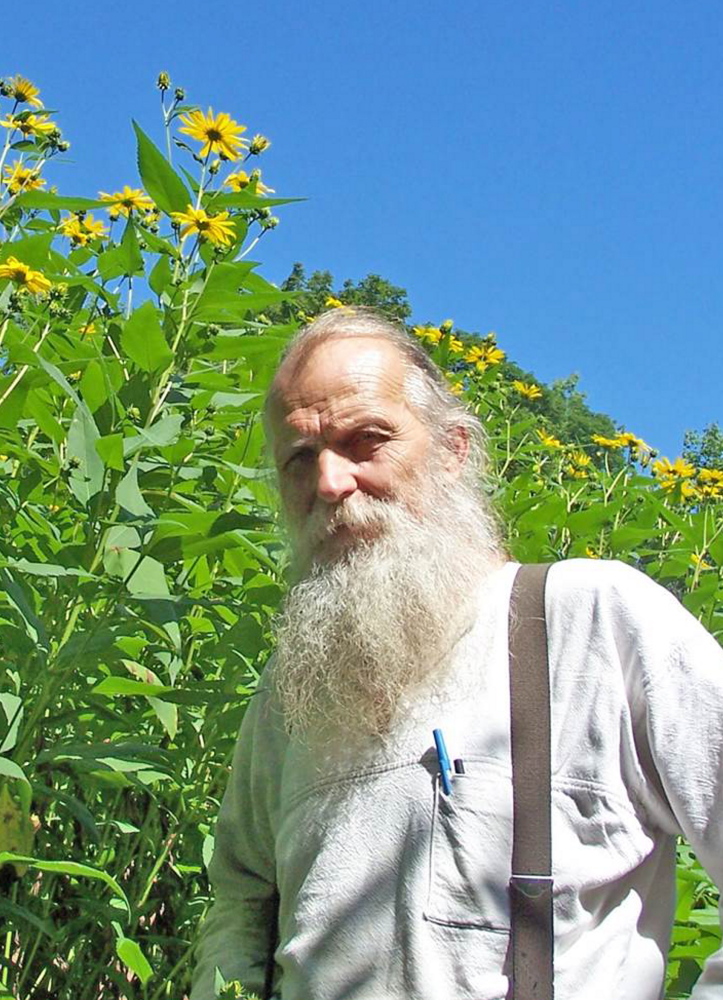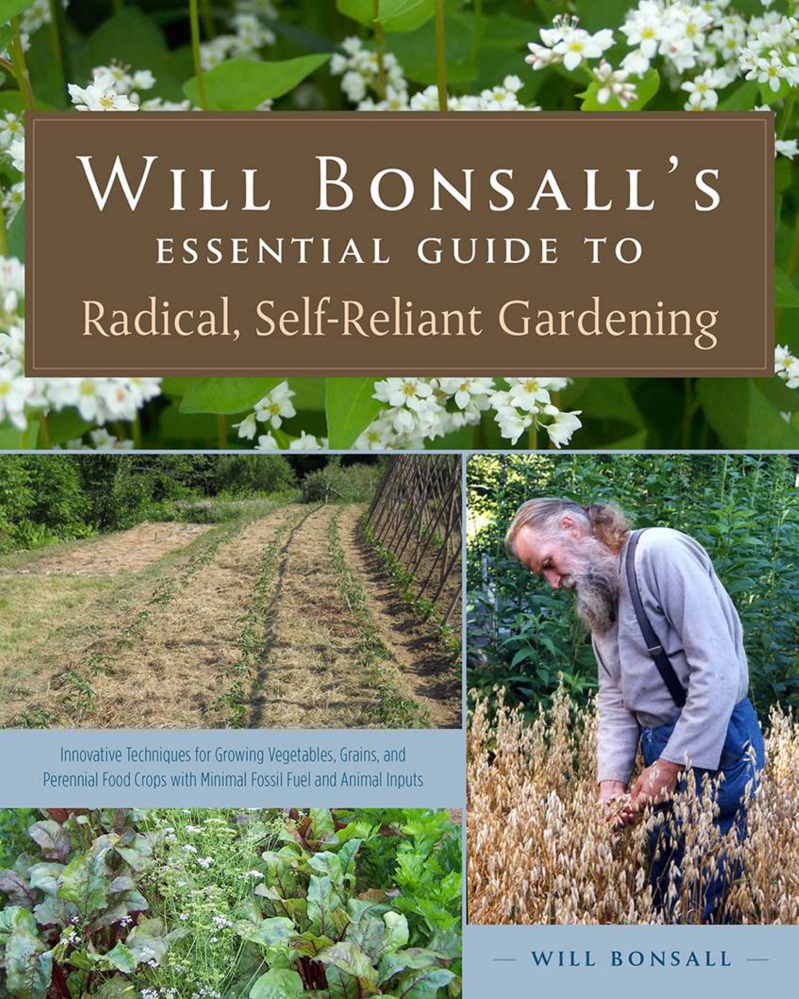Will Bonsall wants his gardens to be eco-efficient and self-reliant. He would prefer to avoid the marketplace altogether, neither selling nor buying anything – but he has not achieved that goal.
He comes closer than most people, though, on his 84-acre property in Industry (just northeast of Farmington), and he describes how he does it in “Will Bonsall’s Essential Guide to Radical, Self-Reliant Gardening,” from Chelsea Green Publishing.
Now, most people don’t have 84 acres, and Bonsall has written a big-picture book, with a philosophy of growing interwoven with a philosophy of life.
But people with a lot less property and those who are less committed to self-reliance can still pick up many interesting details that might make their own gardens more varied and productive.
“People can decide for themselves what elements work for them,” Bonsall said in telephone interview. “There are all sorts of things in there, and they can pick and choose.”
Eco-efficiency is a term Bonsall coined to rate whether plants add more in food value and other uses (compost and mulch for example) than they take from the earth in nutrients.
Bonsall tries to operate a closed system, having nothing leave his property, so he uses all parts of most of his plants.
Bonsall is vegan, but he takes being vegan to the next level by refusing to use animal manure on his land, making an exception for human manure – since humans live there and will consume on site much of what he grows. He gives detailed instructions on creating and using humanure, but you couldn’t do it on a suburban lot.
He opposes cow manure not because of concern for animals, which he will kill if they threaten his crop, but because its use is not eco-efficient.
While he craves eco-efficiency, that does not mean he eats only eco-efficient crops.
“Don’t tell me not to grow sweet corn because it is not eco-efficient,” he said. “I love to – but love to – grow sweet corn, and I eat a lot of it” even though it is one of the least efficient crops. Corn still rates better than even the most eco-efficient meat crops on his eco-efficiency scale, he said.
About 150 pages of the 400-page, 8-by-10-inch paperback cover things people grow to eat. The book includes 200 color photographs. He describes just about everything that can be grown in Maine, naming his favorite varieties of common vegetables such as tomatoes (Bonnie Best, Siletz and Royal Chico) and sweet corn (Baxter, once used by Maine canning companies).
But where Bonsall gets especially interesting is when he writes about items that very few people eat.
“How sad therefore that most of us are accustomed to eating only a tiny part of that food heritage, millions of acres devoted to a paltry selection of the same old crop species,” he writes in the introduction to the section on crops.
He also writes about using groundnuts, rose hips, acorns, Apios americana (a type of groundnut used by native peoples but mostly abandoned since), cattails and more.
He has an entire section on growing grains – and he grows a lot of them. Wheat is the one grain he regularly buys in the marketplace, he said, because it is relatively inexpensive and he can spend his time to better advantage; that said, he grows about half the wheat his household eats.
My favorite section, which should be required reading for every landscape designer and house builder in Maine, is “Rocks, Water and Land.” In it he discusses making stone walls, terraces, rock-filled drainage ditches and other structures that keep water from running off the soil and taking important nutrients with it.
Bonsall is best known for his work in saving seeds as part of the Scatterseed Project, which he founded to help preserve crop diversity, saving some of the old species that the marketplace has not favored. The book includes an excellent, concise section on seed-saving.
Most people would not want to, and probably could not, live the way Will Bonsall does. They do not have enough land. They’d miss the occasional lobster or steak. They’d want to skip cooking some evening and order a takeout pizza.
But if people read Bonsall’s book and each one follows his advice in, say, five different areas – picked at random or chosen to suit that individual – the world would be a much more healthy, sustainable and self-reliant place.
That isn’t such a radical idea at all.
Tom Atwell has been writing the Maine Gardener column since 2004. He is a freelance writer gardening in Cape Elizabeth and can be contacted at 767-2297 or at tomatwell@me.com.
Send questions/comments to the editors.



